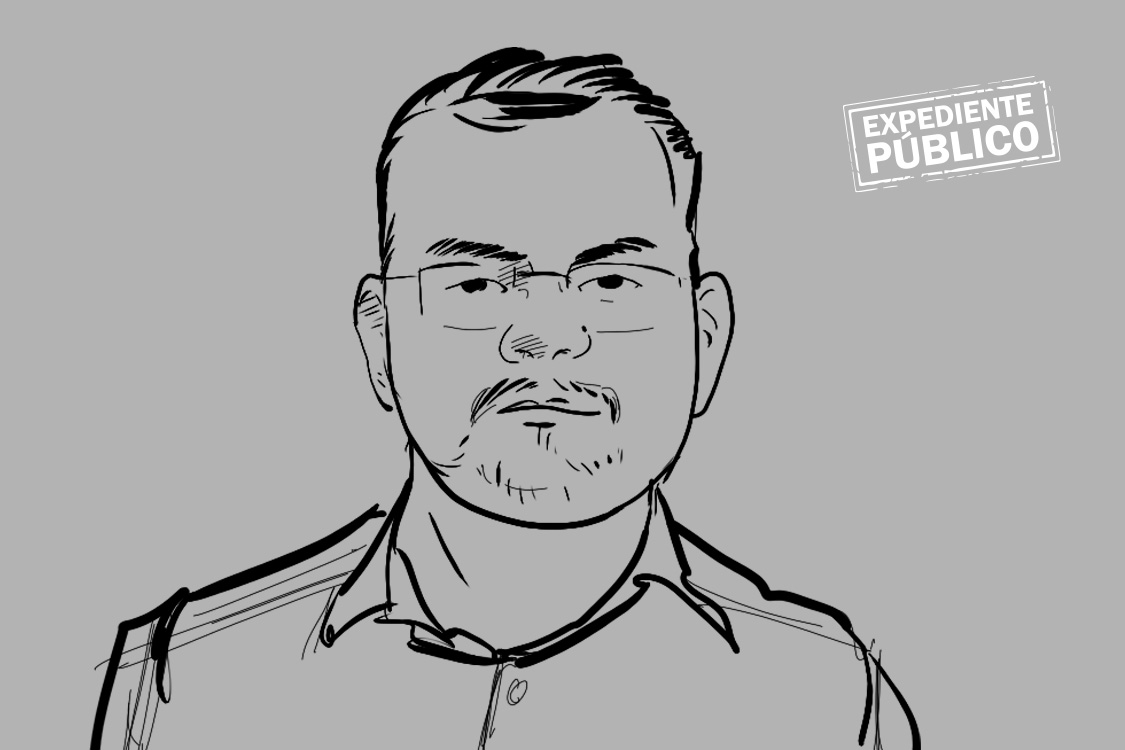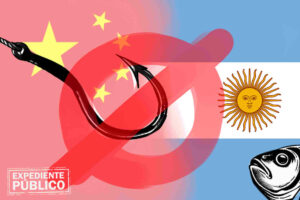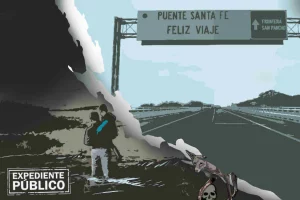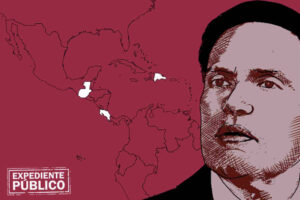*According to Nicaraguan law, the incarcerated have the right to attend their family members’ funerals, but the authorities did not let Jerez exercise this right.
**The former prisoner reported that many of them were taken to punishment cells or isolation chambers without any reason other than to “cause them emotional harm.”
Expediente Público
Max Jerez is one of the most well-known faces of the Nicaraguan opposition. The young leader and musician incarnates the social movement against the reforms to the pension system that spurred protest in April 2018 in Nicaragua. He was in prison for 19 months. Daniel Ortega’s regime even hid from him that his mother had died.
Jerez was captured in July 2021. He had already been incarcerated between 2018 and 2019. During those months in prison, he was isolated for various periods of time, but he also had different prison mates. For the first few weeks, he was alone. His first prison mate was Róger Reyes, an attorney imprisoned for defending presidential precandidate Félix Maradiaga.
“There were prolonged periods of time without family visits, without knowing what had happened to your loved ones, which was a process of uncertainty that was designed to cause emotional damage to each one of the individuals who had been kidnapped during the course of these years and months in El Chipote prison,” he alerted to Expediente Público.
Jerez also shared a cell with other political prisoners who were exiled last February 9, including Juan Sebastián Chamorro, Marcos Fletes, Francisco Aguirre, Juan Lorenzo Holmann, and Miguel Mendoza, among others.
Read: Expresos políticos: “operación azul y blanco”
On the plane that brought Jerez to Washington, D.C., he was able to reconnect with many “friends of the cause,” or people who, unbeknownst to him, were prisoners or were at El Chipote in nearby cells but whose faces he had never seen during his imprisonment.
He indicated that he would follow the immigration process offered by the United States and although unsure of the future, “I am firmly convinced in my participation in fighting for the Nicaraguan cause. I am not willing to withdraw from the fight for freedom.”
“There are many projects and expectations. It was an issue (the release) that was not expected. Many are focused on getting out of the humanitarian process, but we are seeing how to proceed because even though the dictatorship insists on stripping us of our rights, we carry Nicaragua with us wherever we are. However, what will not last forever is the dictatorship,” he added.
The death of his mother
“I feel content and strong for the most part. I feel like there are mixed feelings because of the reunion, particularly happiness, fraternization between friends and family, and sense of conviction to fight for justice, democracy, and the rights of all our Nicaraguan brothers, he told Expediente Público during his first weekend of freedom.
“It has been a very difficult experience. Several of us brothers have gone through an illegal and arbitrary process of detention, trial, and sentencing, which has taken place outside of the law. It is a complex process, and we have had to live through very difficult moments,” he said.
Read: Los cinco fieles a Daniel Ortega y ahora desterrados
“Personally, one of the most difficult moments for me was the passing of my mother. I could not accompany her at that moment. I did not even know that she had passed but learned of her passing after the fact. And that particularly affected me, even though my friends sent me messages of support and hope. We build each other up. Among the prisoners, my brothers in the same cause, I never saw a downtrodden spirit but rather one of strength, attitude, and conviction. Those were the clear messages sent,” he said.
Heydi Meza, the mother of Jerez, died on September 17, 2021, at the age of 66. Article 69 of Law 473 of the Nicaraguan Prison Code permits the heads of prisons to give extraordinary permissions “in the case of a death or terminal illness of parents, siblings, spouse or partner, and children,” for a maximum period of 72 hours, with all the pertinent security measures in place.
Subscribe to Expediente Público’s newsletter and receive more information
“When there was an opportunity to do so, we motivated each other to press onward. In difficult moments, God does not leave us. In the darkest times, there is always a small light,” he said.
The former prisoner pointed out that there were those who suffered from prolonged or partial isolation. “I was in a punishment cell for months. I also lived in isolation, an experience that varies from person to person. But I can say that we encouraged each other to be strong, and that strength made sense for us because all of the political prisoners had the strong conviction that what they were experiencing was worth it because we were working toward bettering the country.”
Read: Edward Lacayo, “La loba feroz”: “Nicaragua es una gran prisión”
There was no apparent reason to isolate the prisoners. “Not one of us was familiar with the logistics of maintaining individuals in solitary confinement in something designed to be cells of punishment for short periods. In our prison logic, there was no way to know or predict anything. I simply had to accept the isolation and adverse conditions at times. Everything varied quite a bit,” he said.
Medardo Mairena spent more than a year in a punishment cell with Yader Parajón, Dora María Téllez was placed in the male prisoner wing, and Tamara Dávila lived without a prison mate for a long period of time.
Read: Detenido 39 meses por dar comida a los manifestantes
“There was a lot of emphasis on food and drink, but there were things beyond that which went against the human feeling, such as not having anything to distract you, read, or write as well as not receiving information from the outside, and being able to communicate,” he said.
Missing persons
Following captures by civilians or the police, most political prisoners began to be considered missing persons due to the lack of information on them for weeks and months after their detentions.
“There was a process of incommunicado detention. They said that we were under investigation and that we could not be in contact with anyone other than the police for three months, but the norm did not go away. These conditions stayed the same during the trial and serving of the sentence. There was no change in the conditions for the investigation, sentencing, and convicting processes,” affirmed Jerez.
Read: Expresos políticos desterrados de Nicaragua celebran la libertad
As a free man, one of the things that most surprised Jerez was the high number of Nicaraguans who had migrated. To former prisoners, this fact meant that many people did not see a light at the end of the tunnel for the country.





